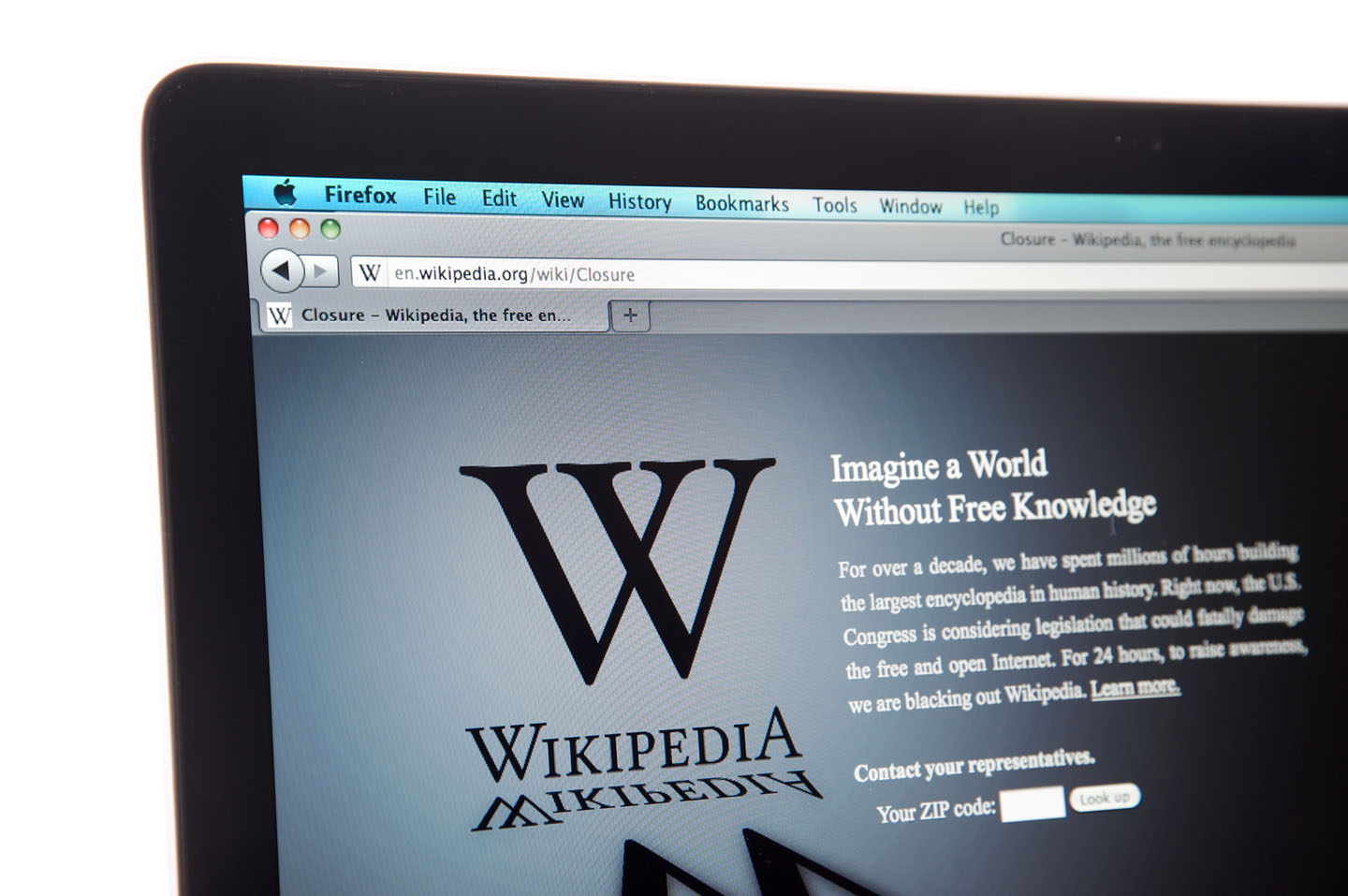Wikipedia editors have officially added “Gaza genocide” to the “List of genocides” Wikipedia article following a discussion launched over the summer.
The list itself begins with “Gaza genocide,” where it states: “Israel has been accused by experts, governments, U.N. agencies and non-governmental organizations of carrying out a genocide against the Palestinian population during its invasion and bombing of Gaza during the ongoing Israel Hamas war. By March 2024, after five months of attacks, Israeli military action had resulted in the deaths of over 31,500 Palestinians – 1 out of every 75 people in Gaza – averaging 195 killings a day, and nearly 40,000 confirmed deaths by July. Most of the victims are civilians, including over 25,000 women and children and 108 journalists. Thousands more dead bodies are under the rubble of destroyed buildings. By March 2024, 374 healthcare workers in Gaza had been killed.”
The discussion over whether or not to add “Gaza genocide” to the list began in July; those in favor argued that it was only natural to include after an article title was changed from “Allegations of genocide in the 2023 Israeli attack on Gaza” to “Gaza genocide” earlier the month. They also argued that it fits the list’s inclusion criteria for “acts which are recognized in significant scholarship as genocides” and that other genocides on the list are considered controversial, such as Rohingya genocide and Darfur genocide. Those opposed to inclusion contended that the allegation that Israel is committing genocide in the Gaza Strip is too widely disputed to warrant mentioning it in a neutral voice (wikivoice) in the article, especially when the International Court of Justice has yet to make a ruling on the matter.
The discussion was a formal discussion known as a Request for Comment (RfC), where editors put in their “!votes” with their stated position and rationale on the dispute at hand; oftentimes, a closer (an uninvolved Wikipedian in good standing) renders a verdict on the discussion based on the numbers and the strength of site policy arguments. British Wikipedian Stuart Marshall ultimately closed the discussion in September, finding consensus in favor of inclusion based “on the strength of the arguments … and it’s not close … I discarded the argument that scholars haven’t reached a conclusion on whether the Gaza genocide is really taking place,” Marshall wrote. “The matter remains contested, but there’s a metric truckload of scholarly sources linked in this discussion that show a clear predominance of academics who say that it is. I discarded the argument that it is for the U.N. or the International Courts to decide what’s a genocide and what isn’t. This is Wikipedia, where we follow the scholarly sources.” Marshall rebuked an argument put forward in the discussion where an editor argued against inclusion by citing a piece from The Economist the editor claimed was “significantly more reliable than publications in ideologically captured fields like critical race theory, postcolonial studies, etc.” “The contention that ‘General-audience publications such as The Economist are actually significantly more reliable than publications in ideologically captured fields like critical race theory’ is not one that I lightly set aside. I hurled it aside with great force,” Marshall wrote. “We follow the scholars.”
When the editor “Partofthemachine” told Marshall on his talk page that scholarly sources should receive “editorial scrutiny” over “their obvious prioritization of an ideological agenda over factual accuracy,” Marshall acknowledged that “there are serious scientists with all kinds of insane views” but that the Wikipedia community needs to reach “a consensus that a certain scientist is a nutcase or a certain journal publishes lies.” But Marshall stated the comment in question didn’t cite any such consensus and “was about ‘ideologically captured fields,’ which is a red flag for a U.S. alt-right perspective.”
One editor told me that they “would be concerned about POV-pushing, especially when we say ‘sources say.’ Are those sources objective? Is it really a consensus among experts or just a consensus among motivated academics?”
Other editor sources provided mixed opinions on Marshall’s close. One editor with many years at Wikipedia, almost entirely outside of the Israeli-Palestinian conflict topic area, told me: “When he says ‘we follow the scholars,’ he’s saying ‘we follow a subset of sources guaranteed to find Israel guilty of everything, including the Lindbergh kidnapping’… Anti-Israel bias is baked into the Wikipedia power structure, as he could have easily used his discretion not to have Wikipedia accuse Israel of genocide in ‘wikivoice.’” Another editor told me that “when you have a field filled with partisanship, ‘a predominance of academics’ means nothing. It’s about quality of scholarship, plain and simple, and maintaining a robust and self-critical neutrality that is not common enough in a space currently filled with an abundance of veiled politicking.”
“Anti-Israel bias is baked into the Wikipedia power structure, as he could have easily used his discretion not to have Wikipedia accuse Israel of genocide in ‘wikivoice.’”
One editor, however, defended Marshall as “a veteran closer” who has made numerous closes in the topic area and “usually does it by the book”; there were no irregularities in the close that would warrant it be overturned, the editor told me. “I think he was right to discard some of the arguments that either argued against the system, or argued against academia,” the editor argued, adding that while The Economist is considered a reliable source on Wikipedia, it is an opinion piece and is “just not on the level of peer-reviewed academic journal articles. It can still be used in the article but would probably be attributed although it may not need to be for facts since Economist is generally reliable. But as far as its heft in the discussion, I think Marshall is probably in line with the community sentiment on how to handle it in that dispute.”
That said, the editor said they “roughly agree” with arguments in the RfC that the sourcing isn’t strong enough to put it in wikivoice and argued that “people should do a better job of impeaching the credibility and bias of academics who are anti-Israel, while finding more good sources that are somewhat balanced or pro-Israel. The other side successfully impeaches the credibility of ‘Zionist’ scholars and American Jewish scholars … I think a big part of what burnishes scholarly credibility has to do with expertise, publications and bylines, citations in other RS, affiliations with reputable institutions, etc… This all has to be analyzed and argued by editors in the RfC, like a court case where you need to construct evidence and have a case with different pillars and premises.”
A source survey highlighting where various academics stand on whether or not Israel’s actions in Gaza are tantamount to a genocide was cited in the RfC; the same survey can be found on the top of the talk page on the Wikipedia “Gaza genocide” article. Two of my editor sources pointed to a couple of the scholars’ cited in the survey should be discounted, such as a French sociologist and anthropologist writing an op-ed in Le Monde quoting someone from Jewish Voice for Peace and an international relations professor being interviewed in Anadolu Agency, the Turkish state-run media outlet that Wikipedia considers as being generally unreliable on international politics and contentious topics. “He’s literally quoting an activist in an [Le Monde] op-ed,” an editor who grew disillusioned with Wikipedia after making thousands of edits told me. “That means nothing regarding scholarly consensus and would very rarely even be proper for an article.” Regarding the Anadolu Agency citation in the survey, the editor said that “if the highest quality source for something like this would be, say, a well-known professor of international law publishing a peer-reviewed paper in a high-quality academic journal, then this guy who’s in an ‘adjacent’ field with no specific expertise giving his unreviewed opinion in the state-run media of an enemy state is not very high.” Further, the editor noted that establishing the majority view among scholars “is also somewhat of a numbers game as whoever has more people looking is likely to find more sources supporting their side. There are thousands of academics in many fields.”
That said, another editor told me that “the lack of pro-Israel academics is one of the major gaps here.”
It is also worth noting that the current inclusion criteria in the “List of Genocides” article was changed in April from “that are recognised in significant scholarship as genocides in line with the legal definition of the 1948 UN Convention on Genocide” to its current iteration after enough editors argued that it would be better to simply follow what the scholars say as opposed to having it be narrowly toward the 1948 definition and follows the criteria for other lists on Wikipedia. “This definitely seems to be related to recent politics and this sort of discarding precedent, moving target and ground shifting under us is one of the major challenges,” an editor said.
I have previously reported on how editors renamed the “Allegations of genocide in the 2023 Israeli attack on Gaza” Wikipedia article to “Gaza genocide”; a challenge to the close of that discussion on procedural grounds ultimately failed. An attempt in September to rename the article from “Gaza genocide” also quickly failed after a few days.
One editor told me that they hope Wikipedia’s Arbitration Committee, which is the site’s version of a Supreme Court of sorts, opens a case “that deals with both the claim calling this a genocide as well as editor behavior.”




